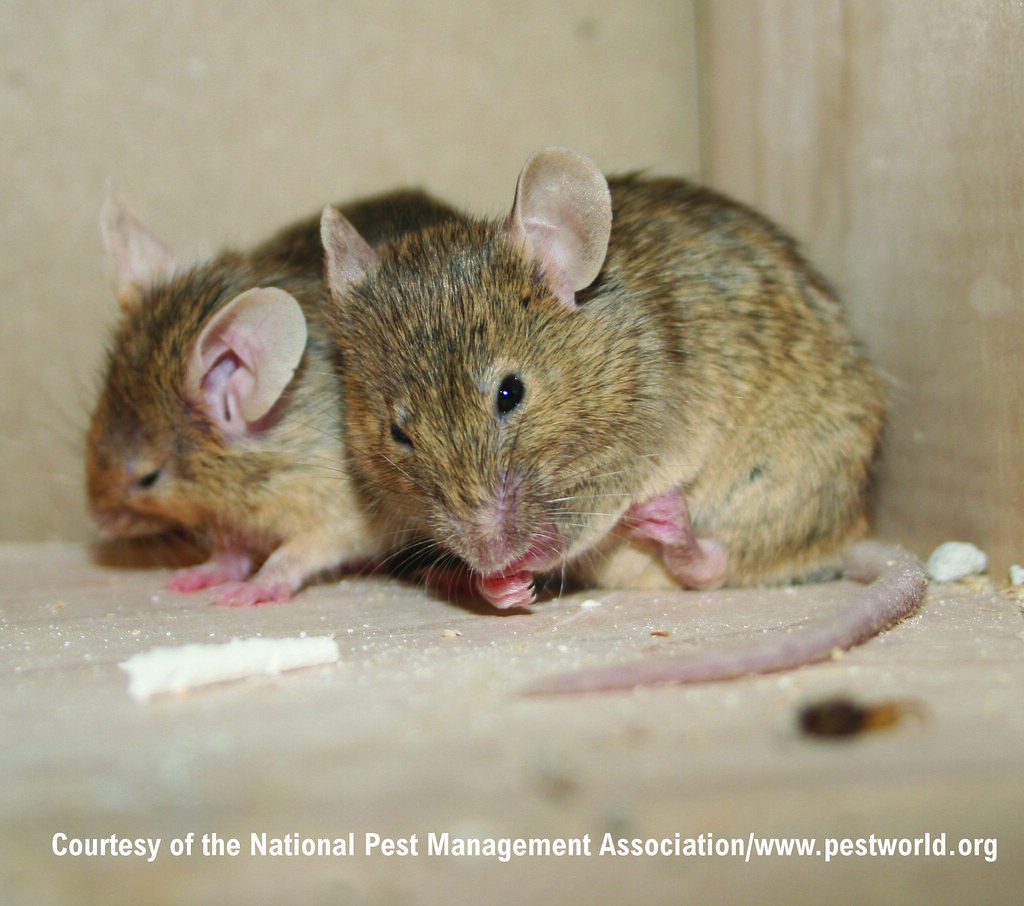Mice

Photo credit: Mice by SITS Girls is licensed under CC BY-SA 2.0
How do you identify mice?
Mice are:
- brown to grey on top and lighter underneath in colour
- their tails are longer than their bodies
- usually 2 – 3 inches (5 – 7 cm) in the body with tails that are 3 – 4 inches (7 – 10 cm)
- they make gnawing and scratching noises
- they have large ears
- they are active at night
If you have seen something bigger with a tail that is shorter than its body, it could be a rat.
What do mouse droppings look like?
They leave droppings that are:
- black in colour
- the same shape and size as rice grains
If the droppings are larger and shaped differently, it could be a rat.
What do they eat?
Mice will eat or move anything that's in the open or in cupboards they get into.
How do you stop mice coming into your home?
- close off places they can get in. These are holes in walls, skirting boards, cupboards or floors
- keep food in sealed hard plastic, glass or metal containers. (Rats can chew through soft plastic and cardboard)
- throw away food you don't want and correctly store and dispose of food waste (such as vegetable peelings)
- your food waste bins must have secure and closable lids
How do you get rid of mice?
-
you can buy poison bait from a pharmacy, hardware store or DIY shop. You must read the label and follow the directions carefully for whatever you use.
-
you can also buy spring traps to kill mice from DIY and hardware shops. You should always check traps at least once a day
-
you can buy humane traps from the same places. Check traps at least once a day, and please remember to release captured mice well away from your or anyone else’s home
Can the council help you get rid of mice?
Yes, we have experienced pest controllers who can treat the problem for you.
Treatment costs
£146.40 per treatment.
Book a pest control visit